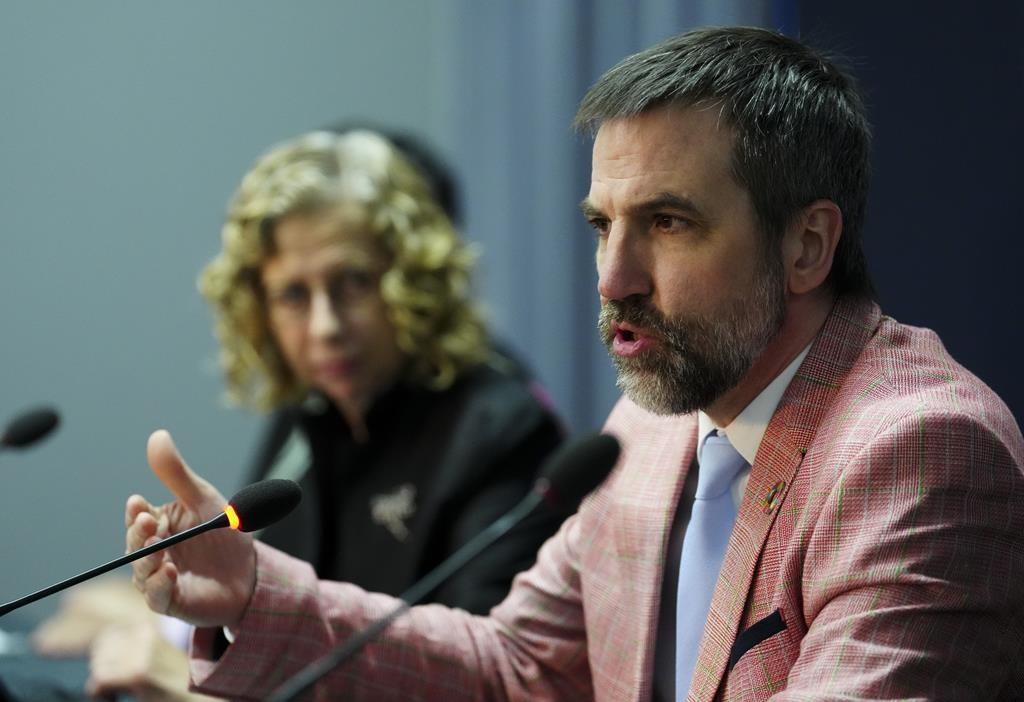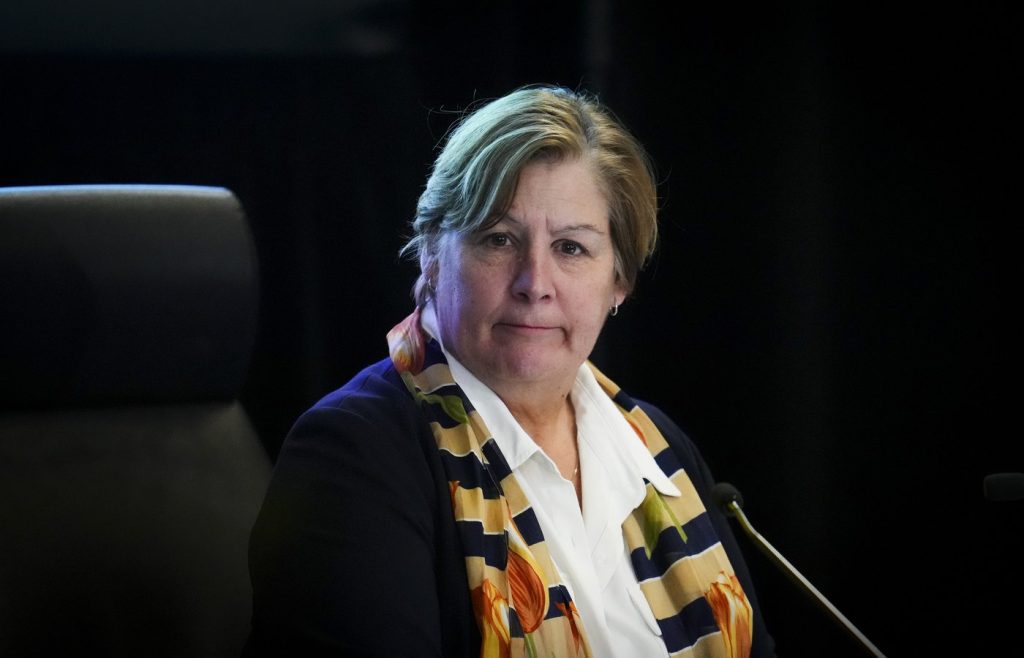Cap on plastic production may be too complicated for global treaty: Guilbeault

Posted April 26, 2024 11:48 am.
Last Updated April 26, 2024 3:14 pm.
A global treaty to end plastic waste can be ambitious and successful without firm caps on plastic production, which are hard to design and harder to get agreement on, Canada’s environment minister said Friday.
Negotiators from 175 nations are in Ottawa trying to solidify some of the details of such a treaty, which is supposed to be finalized this fall in Korea.
A cap on plastics is among the most contentious items on the table.
Environment Minister Steven Guilbeault said there’s a need for some limits on plastics, including bans on certain single-use plastics and the most toxic chemicals used to make them. And he said Canada is “not opposed to the concept of a production cut.”
“I’m just not sure how we would do it,” he said in an interview. “And I think there are other ways of achieving a goal like that without going through what could be a very difficult and not too constructive process.”
A clause that outlines a specific target to cut plastics by a specific date is more complicated than it may sound to some, he said.
“I don’t think we have done enough work collectively to be able to do that,” he said. “I’m not sure how we would operationalize something like that.
“If, say, we were to agree on a plastic cap … how would we enforce this globally? Would we have to come up with a quota system? Would each country cut their production by 10 per cent voluntarily?”
Instead, Guilbeault pointed to policies that are easier to conceptualize, and more widely acceptable, that could achieve the same results. They include single-use plastic bans, reuse and recycle policies, and design standards that require minimum amounts of recycled content in new plastics.
“All of these things will inevitably lead to a reduction in demand of virgin fibre plastic,” he said.
Canada began phasing in a ban on single-use plastic items in 2022 starting with straws, grocery bags, cutlery, takeout containers, stir sticks and six-pack rings for beverage containers.
However that policy is in doubt after Canadian plastic makers and chemical companies successfully argued in court that the government was too broad when it declared all plastic to be toxic.
That designation under the Canadian Environmental Protection Act is required to regulate a ban. The government is appealing the decision, but may have to be more specific about the kinds of plastic for which it has solid evidence.
Guilbeault has also promised to enact standards to require a minimum amount of recycled material in plastic products, reducing the amount of new plastic required and creating a new market for recycled material.
In 2020, Canada produced more than 7.1 million tonnes of plastic and only five per cent of it was recycled material. Almost five million tonnes of plastic ended up as waste, with less than 10 per cent of it recycled.
Almost one-third of Canadian plastic is made for packaging, and more than 40 per cent of plastic waste comes from packaging.
Greenpeace Canada, which is demanding a 75 per cent cut to plastic production from 2019 levels by 2040, was immediately dismayed at Guilbeault’s comments.
Greenpeace plastics campaign head Sarah King said Guilbeault is out of step with the public and scientists. “Canada has a job to do to and that is to support strong measures across the board, not undermine them.”
Anja Brandon, associate director of U.S. plastic policy at Ocean Conservancy, said cuts to how much plastic we make are essential if plastic pollution is to be controlled.
“We absolutely cannot truly move the needle on this issue without starting with reduction,” she said. “Every single scientific model — and there have been many many models at this point — have found that if we want to tackle the plastic pollution crisis for the sake of our ocean communities, public health, human health, all of it, we need to start with reductions to make and use less single-use plastics in the first place.”








